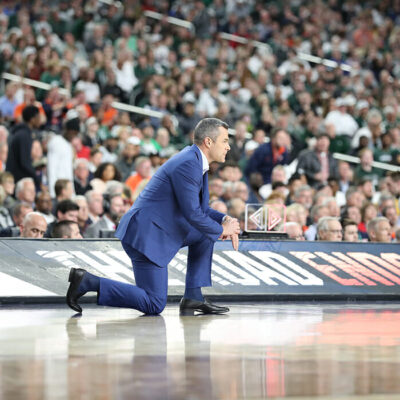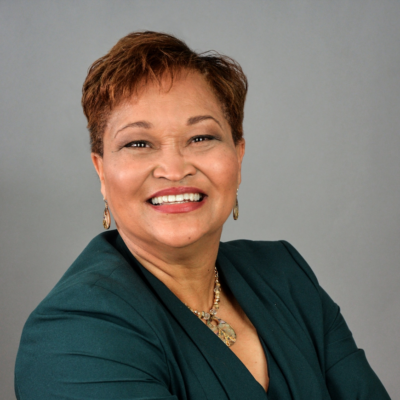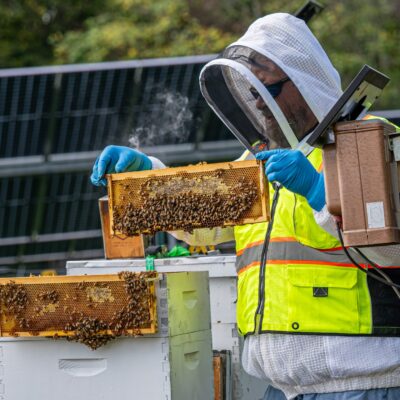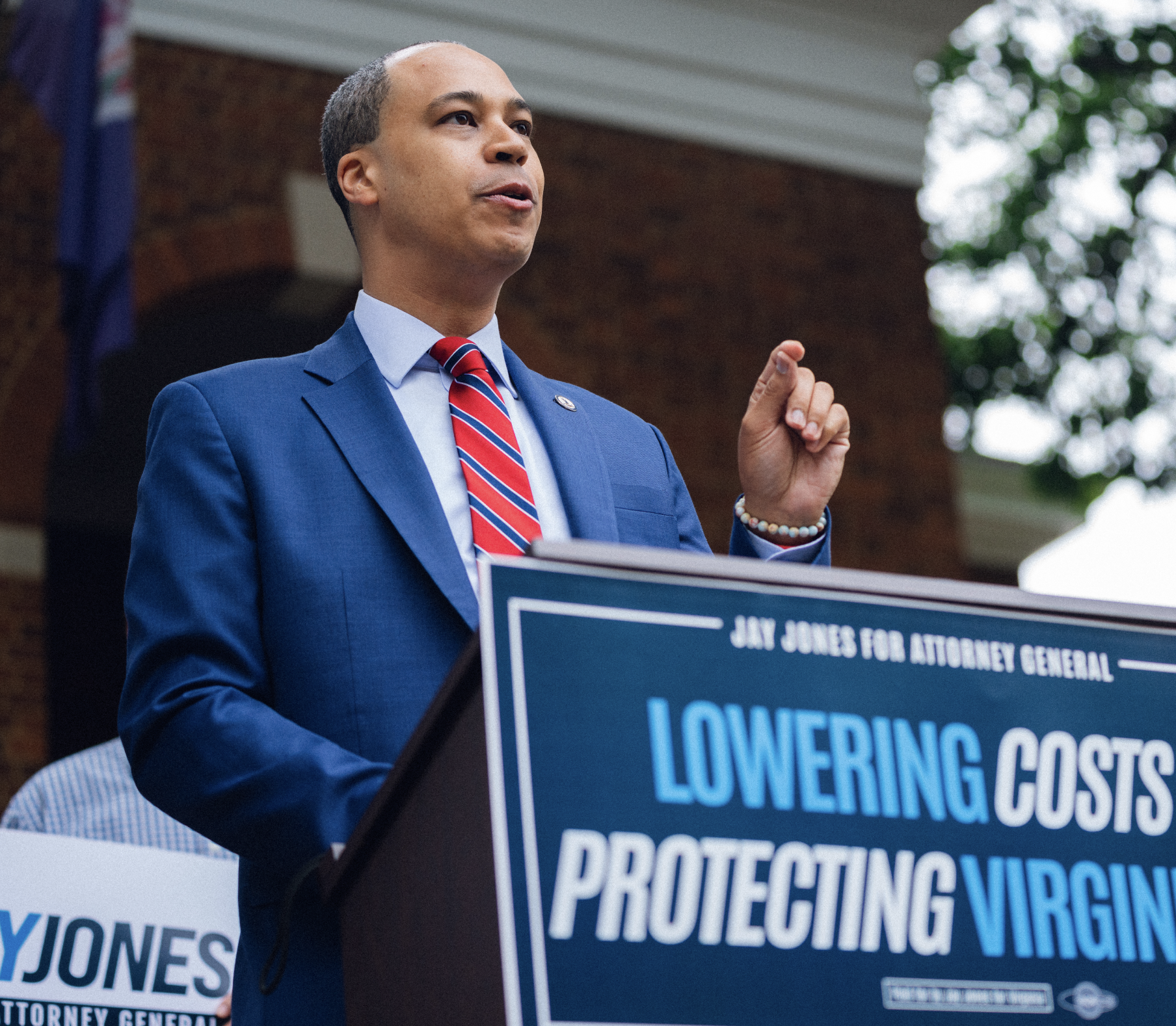
This is the third article in C-VILLE’s 2025 election series, covering local and statewide races in the lead-up to Election Day, November 4. For candidate responses to additional questions, visit c-ville.com.
Virginians will elect the state’s next attorney general and lieutenant governor this November. Both races have received national attention, with scandals rocking two of the candidates in the weeks before the election.
Attorney General
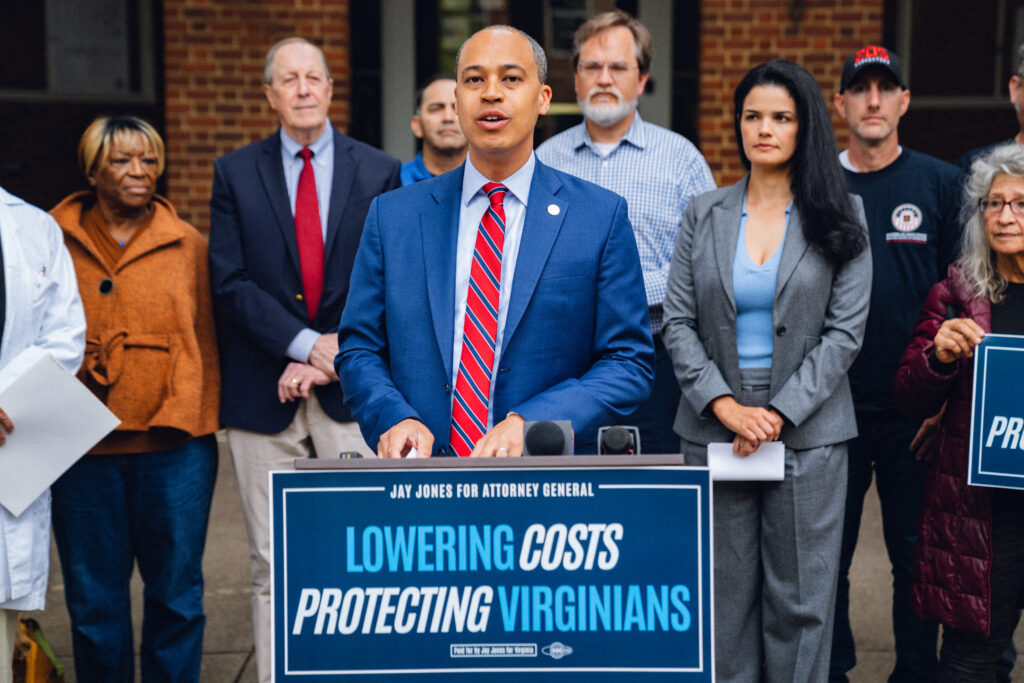
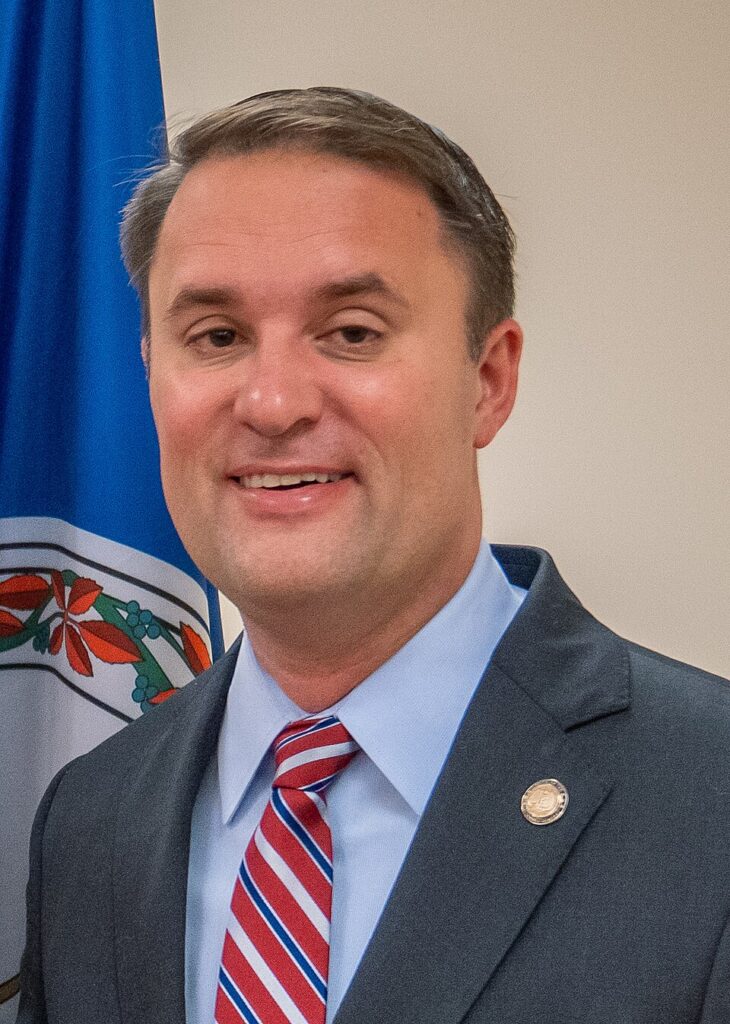
Virginia’s attorney general election has become focused on scandal, rather than policy.
In early October, both a reckless driving conviction and damaging text messages from Democratic candidate Jay Jones came to light. The Richmond Times-Dispatch reported that Jones served his community service for the 2022 charge of driving 116mph in a 70mph zone with his own political action committee.
Jones’ texts, first uncovered by the National Review, included a string of messages reading, “Three people, two bullets,” “Gilbert, hitler [sic], and pol pot [sic],” “Gilbert gets two bullets to the head,” referring to former Virginia House Speaker Todd Gilbert. A separate implication that it would take Gilbert’s own children dying for Republicans to take action on gun control has also been featured in ads.
The controversies took center stage at the sole debate between Jones and incumbent Republican Jason Miyares, held at the University of Richmond on October 16. In his opening remarks, Jones directly addressed the texts.
“Let me be very clear: I am ashamed, I am embarrassed, and I am sorry,” he said. “I am sorry to Speaker Gilbert. I am sorry to his family. I am sorry to my family, and I’m sorry to every single Virginian. I cannot take back what I said, but you have my word that I will always be accountable for my mistakes. And you also have my word that I will spend every waking moment fighting for you.”
Throughout the debate, Jones framed Miyares as a “willing cheerleader” for Trump policies harming Virginians and highlighted the attorney general’s failure to join other states in a suit against the administration. Miyares responded that Jones is treating the legal office as a political office, referenced the texts and driving conviction repeatedly, called Jones a “criminal,” and said he should drop out of the election.
Prior to winning the Democratic primary in June, Jones served as a member of the Virginia House of Delegates for two terms. He also was an assistant attorney general in the Office of the Attorney General for Washington, D.C., and represented the Virginia branch of the NAACP.
Miyares, the only incumbent on the ticket, worked as a prosecutor in the Virginia Beach Commonwealth’s Attorney Office and served three terms as a state delegate.
Neither Jones nor Miyares responded to C-VILLE’s candidate questionnaire by press time. More information on the candidates’ platforms and recordings of the debate can be found online.
Lieutenant Governor
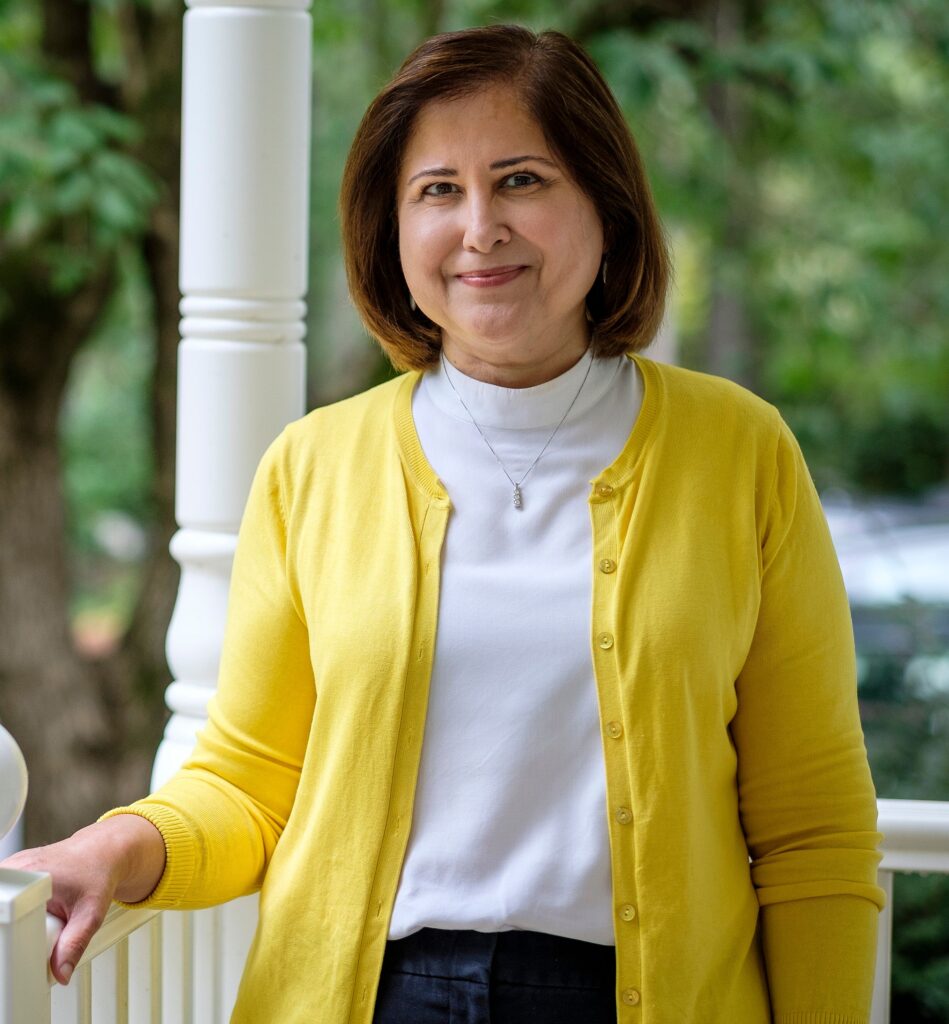
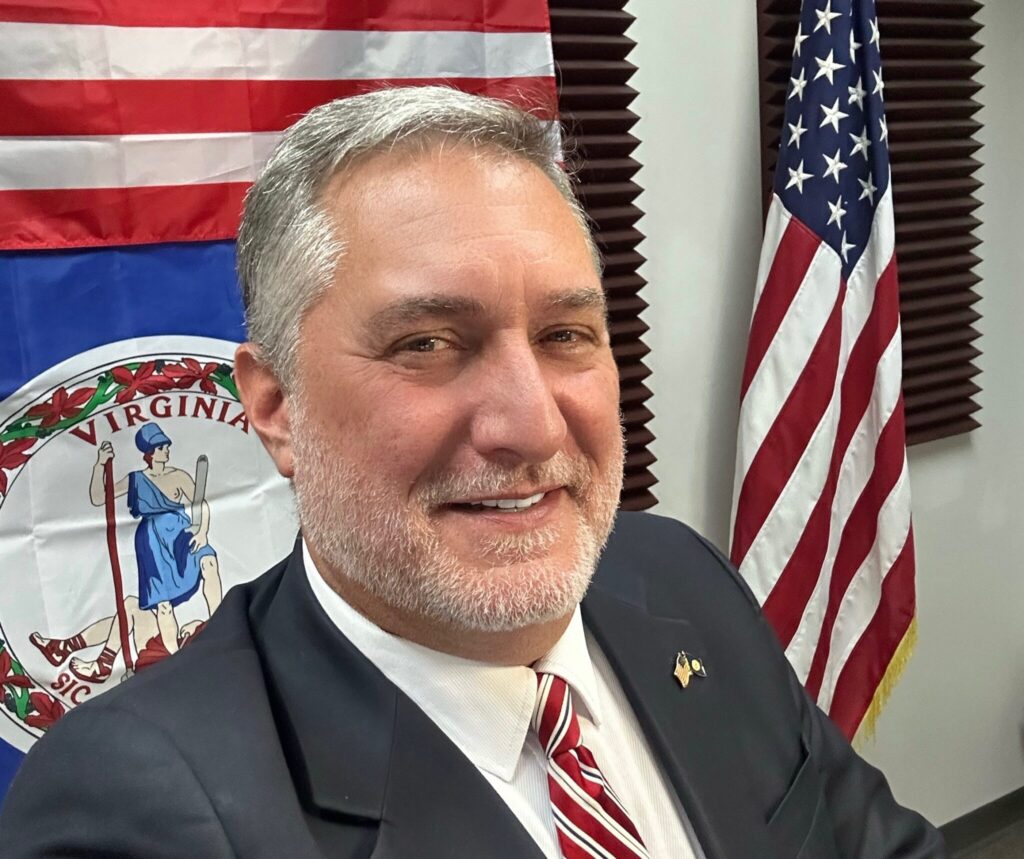
Both lieutenant governor candidates are historic firsts for the statewide ballot. Democrat Ghazala Hashmi is the first Muslim and first Indian-American nominee in the Commonwealth’s history. Republican John Reid is the first openly gay candidate.
The contest between Hashmi and Reid has received less national attention than Virginia’s attorney general race, but it has not been without controversy. Responses to C-VILLE’s candidate survey, addressing both policy and allegations connected to a social media account that other media outlets connected to Reid, are included below.
C-VILLE: How will you approach the lieutenant governor’s role as president of the state senate?
Ghazala Hashmi: Over my two terms in the [state] senate, I have learned the vital importance of listening to the perspectives of different parties, compromising when possible, and being able to explain one’s own position to others. I will bring these same approaches to the role of lieutenant governor.
John Reid: The lieutenant governor’s role is to preside fairly, enforce the rules of the senate, and ensure that every member—Republican or Democrat—has the chance to be heard. I take that responsibility seriously. My approach will be to run a disciplined, respectful chamber where debate can be spirited but still civil, and where the focus stays on delivering results for Virginians—not partisan theater.
How will you approach the broader role of lieutenant governor?
GH: I have built critical relationships across state agencies and developed policy insights that will help me to serve as a strong, capable, and effective leader in Virginia’s next administration. I will use my platform to address the most pressing issues facing Virginia, including fully funding public education to put every student on the path to success, ensuring every Virginian has access to affordable health care, and bringing down costs on everything from housing to child care.
JR: The office has a unique ability to connect the legislative process with the needs of everyday Virginians. I intend to use it as a platform to elevate the ideas I have put forward in the Real Virginia Agenda—ideas that strengthen families, lower the cost of living, and make Virginia more affordable. That means working across agencies, local governments, and the private sector to move good ideas forward—especially in areas like workforce development, education, and public safety.
An Emerson College poll indicated the economy is a top priority for the majority of Virginia voters. What is your economic plan if elected?
GH: From providing incentives and grants to small businesses to connecting students with internships and work opportunities to developing programs to bring the costs of housing down, I am ready to support smart, forward-thinking legislation to strengthen our business community and bolster our economy. As lieutenant governor, I will focus on continuing my work to attract new companies and keep businesses here in the Commonwealth, invest in the next generation of our workforce, and create more opportunities so that all Virginians have access to good, well-paying jobs.
JR: My economic plan starts with a simple principle: Government should make life easier, not harder. That means cutting the car tax, protecting Virginia’s right-to-work law, holding the line on wasteful spending, and getting government out of the way so small businesses can grow and hire. We also have to make it easier for people to work and build a career here—whether that’s through apprenticeships, credentialing, or better alignment between schools and employers. A strong economy starts with strong families and the freedom to pursue opportunity.
How will you support the economic initiatives of the governor?
GH: I look forward to working with our next governor, Abigail Spanberger, to make Virginia more affordable for working families and grow our economy. We will focus on ensuring Virginia families have every opportunity to thrive, and we can deliver that through effective family leave policies, affordable quality childcare, elder care services, and access to well-paying jobs. Virginians are fired up to elect Democrats up and down the ballot because they know we are ready to take these direct attacks on our federal workforce seriously and defend Virginians against the chaos of Republicans in Washington.
JR: I’ll be a partner in continuing the pro-growth, pro-freedom policies that have made Virginia a national leader. That means supporting efforts to cut taxes, streamline permitting, and recruit new businesses—while also focusing on workforce readiness so Virginia remains competitive long-term. I’ll be an advocate for rural and small-town economies as well, making sure prosperity doesn’t stop at the Beltway.
How will you approach your role as lieutenant governor if all executive seats are within your party?
GH: I will focus on the most pressing issues facing our Commonwealth, including lowering costs to make life easier for working families, protecting access to affordable health care, and strengthening our public schools so that every student is set up for success. As a leader in the state Senate, an educator for three decades, and a mom of two daughters raised here in Virginia, my priority has been improving the lives of all Virginians and bringing people together to solve the most important issues facing our Commonwealth.
JR: If Republicans lead across the board, I’ll work to advance the agenda Virginians voted for: safer communities, better schools, lower costs, and a stronger economy. I’ll help ensure our legislation reflects common-sense values that unite Virginians, not divide them.
How will you approach your role as lieutenant governor if Virginia elects a split ticket?
GH: I firmly believe that Abigail Spanberger will be our next governor, and I look forward to delivering on our shared goals for Virginia: lower costs for working families, access to affordable health care, and stronger public schools. I will be a lieutenant governor for all Virginians—no matter your background, zip code, or party affiliation.
JR: If the voters choose a divided government, I’ll do what I’ve always done in my career—listen, find common ground where it exists, and stand firm on principle where it doesn’t. I believe most Virginians want results, not gridlock. I’m prepared to work with anyone who shares that goal and to be a voice for all Virginians.
Why should you be elected?
GH: I will bring my experience and knowledge to fight for Virginians and their values. I have secured historic funding for our public schools and wrote the plan to protect Medicaid in Virginia. My opponent, John Reid, wants to close public schools and touts plans to cut public education funding, and he supports the bill that will rip away health care coverage from over 300,000 Virginians and has forced three Virginia health clinics to close. I wrote the bill protecting contraception access and helped to draft language for our constitutional amendment ensuring women have access to the safe and legal health care they need and deserve. Reid will vote against protecting reproductive health care, spreads extremist lies about abortion, and has compared abortion to slavery. John Reid has made it clear he is too extreme for Virginia, and he will not protect our rights and freedoms.
JR: Because I’ll bring common-sense leadership back to Richmond. I’m not a career politician—I’m a businessman and broadcaster who’s spent years giving everyday Virginians a voice. I know what it’s like to listen to working families and small business owners who feel government isn’t working for them. I’ll fight to make Virginia a place where families can afford to live, work, learn, and thrive. That means cutting costs, restoring excellence in education, protecting public safety, and defending freedom. I’m running to get results, not headlines—and that’s exactly what I’ll do.
Other news outlets recently linked John Reid to a social media account sharing content from and engaging with “Nazi porn” accounts, which he has denied is his account. What is your response to these allegations and the content published in American Journal News?
GH: I am truly appalled by the vile and disturbing content described in this article. This content and any person’s engagement with it reflects an appalling acceptance of hate and dehumanization. We all have a responsibility to call out racism and extremism when we see it—not only to protect our communities, but to build a future rooted in compassion, equity, and shared humanity. I know that the majority of Virginians are repulsed by this material and reject its shameful violence and bigotry; I stand with you, and as lieutenant governor, I will continue to stand up against all forms of hate and violence. Virginia must remain a place of safety and inclusion—and our leaders must reflect those values through their actions.
A spokesperson for the Reid campaign: The story referenced is categorically false, and despite several requests from the Virginia media, Virginia Democrats have not been able to produce a single piece of evidence substantiating it.
Candidate responses have been edited for length and clarity.

